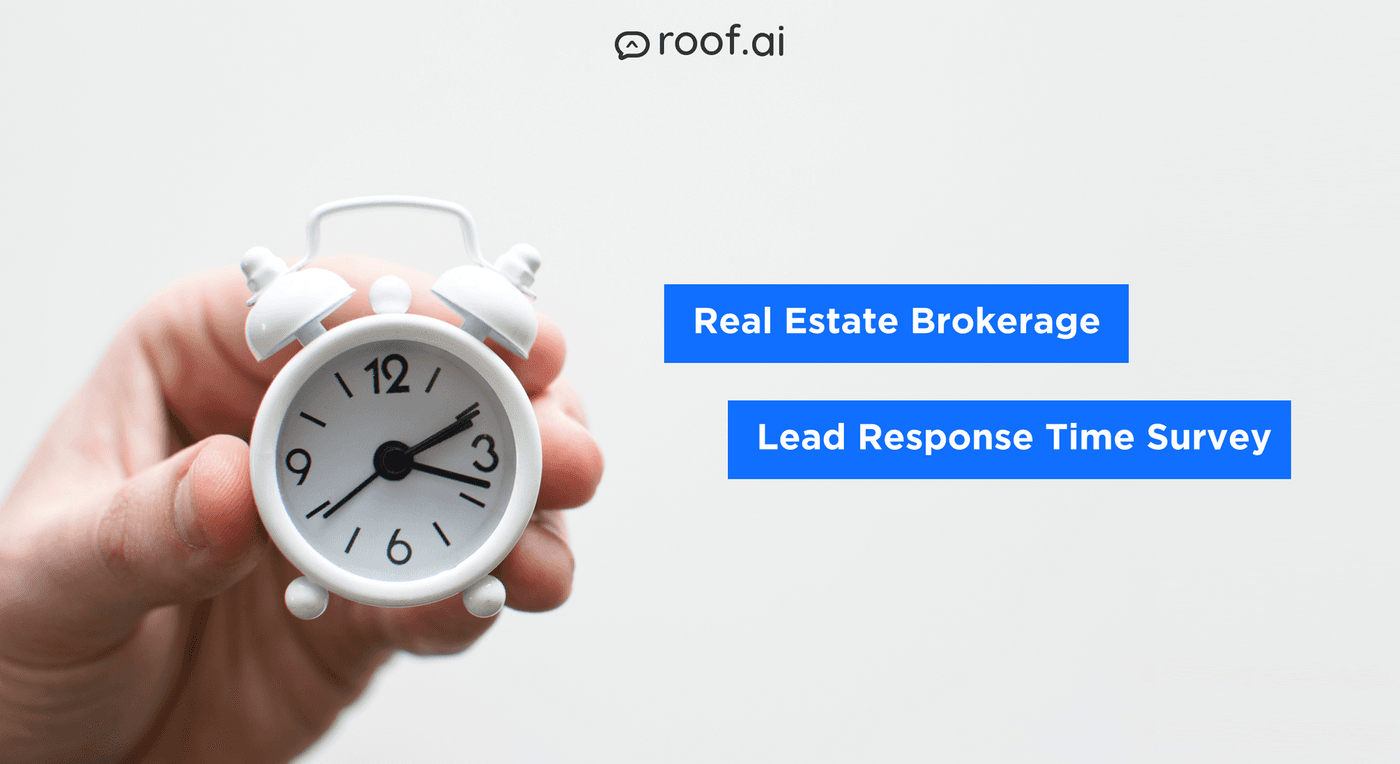Since I work in the real estate technology industry, my friends often come to me with real estate-related questions. A lot of them are at the stage when they are starting to think about buying their own place. Many still confuse me for a real estate agent, so they usually call with excitement, asking the “is it a good time to buy?” question, only to be completely let down by my undetailed, non-agent response.
To cheer them up though - and save what’s left of our friendship - I offer to help them with their home-hunt! I recently met up with my friend Sarah and helped her begin her search online. This is in keeping with the most widespread habits: research indicates that 99% percent of millennials used online websites while searching for a new home.
After more than a few hours of searching, I was thrilled and relieved when she finally found a house that she really liked and was interested in visiting. “GREAT! Contact the brokerage now” I said.
The only options to contact the brokerage was either calling them or filling out an online form. Sarah looked a bit disappointed about having to settle for the phone call. She hadn’t done that in a while (millennials...), but she knew that filling out that 1980’s- looking form would not get her anywhere. After she mustered up the courage and called, she was met with another disappointment: no one was there to answer.
It was this experience that got me thinking about two things:
- How hard it must be for those brokerages to capture a lead without the necessary tools. - How different it feels to shop online for a house on a real estate brokerage website versus say, shopping on Amazon.
The Big Spend
In 2016 alone, real estate agents and brokers spent $7.7 billion on online advertising, of which a large percentage went into driving traffic to their websites.
If more 90% of millennials start their home buying process online, it’s only normal to spend money to get some of those millennials to check out your brand and website.
The question is however, what is actually happening on the website? How are the brokerages facilitating the jump from a digital interaction with a lead to an actual meeting?
Since many buyers look for houses after work hours and on weekends, how are those leads getting captured when there is no contact available at the brokerage?
I went back to work the next day and mentioned what had happened to the team at Roof AI. We then decided to find out some answers.
I wanted to see how well-equipped the top real estate brokerages were to capture those leads.
Using a "secret shopper", we set out to contact the top 74 real estate brokerages in the US to measure one thing:
How fast did the brokerages reply to their online website leads?
Why online website leads? Because these are the hottest online leads anyone can get. The visitor is already on your website, familiar with your offer and your brand, and has made their intent clear.
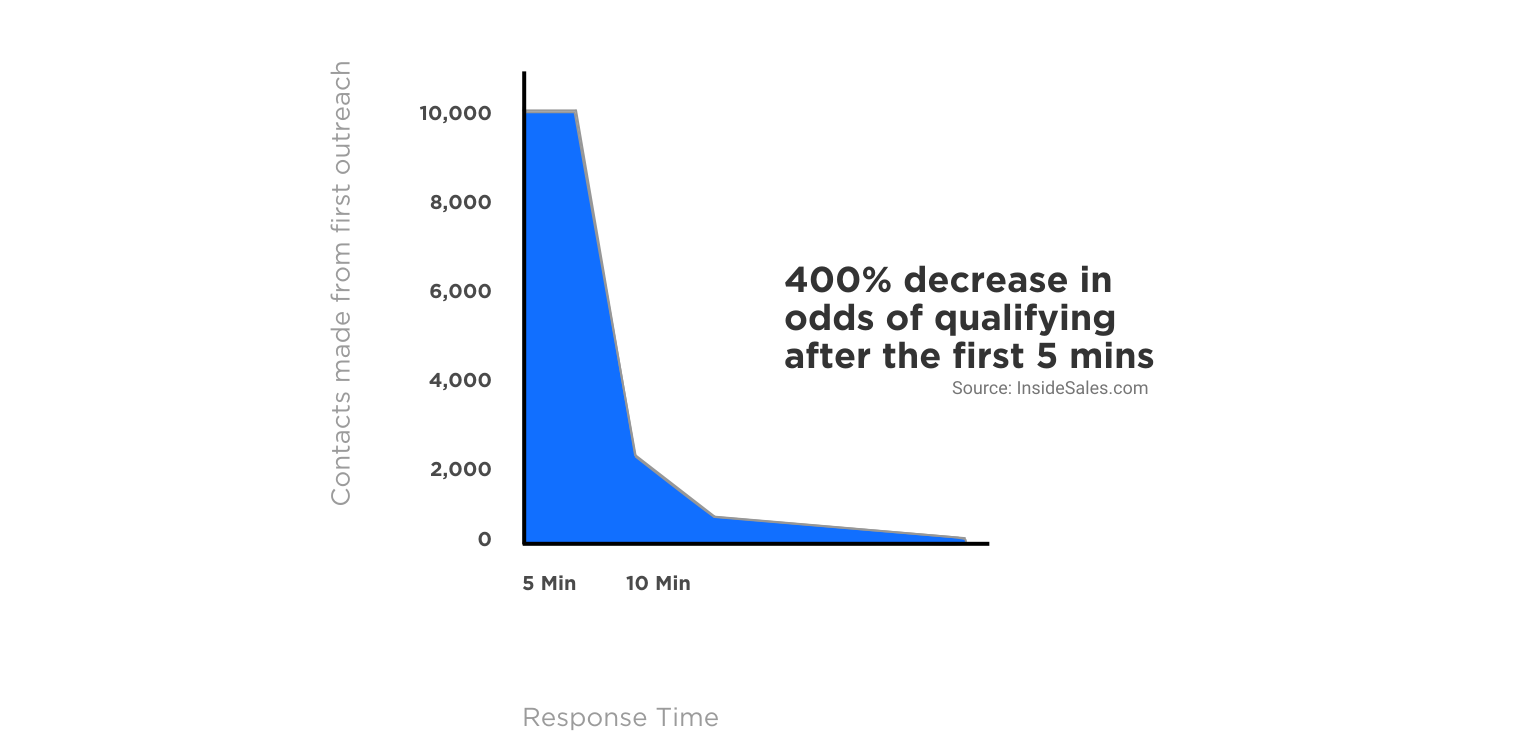
When agents and brokers are on track to spend $7.7 billion in online advertising driving traffic to their websites, you’d expect a little bit of effort put in capturing and engaging with the leads as well.
Results
The results we got made one thing clear: Real estate brokerages - even the top ones - are lacking when it comes to capturing and responding to their website leads.
Actually, it was a bit bad.
The results have shown that of the brokerages we surveyed, 41% of them did not even respond to inquiries. 🦗 🦗
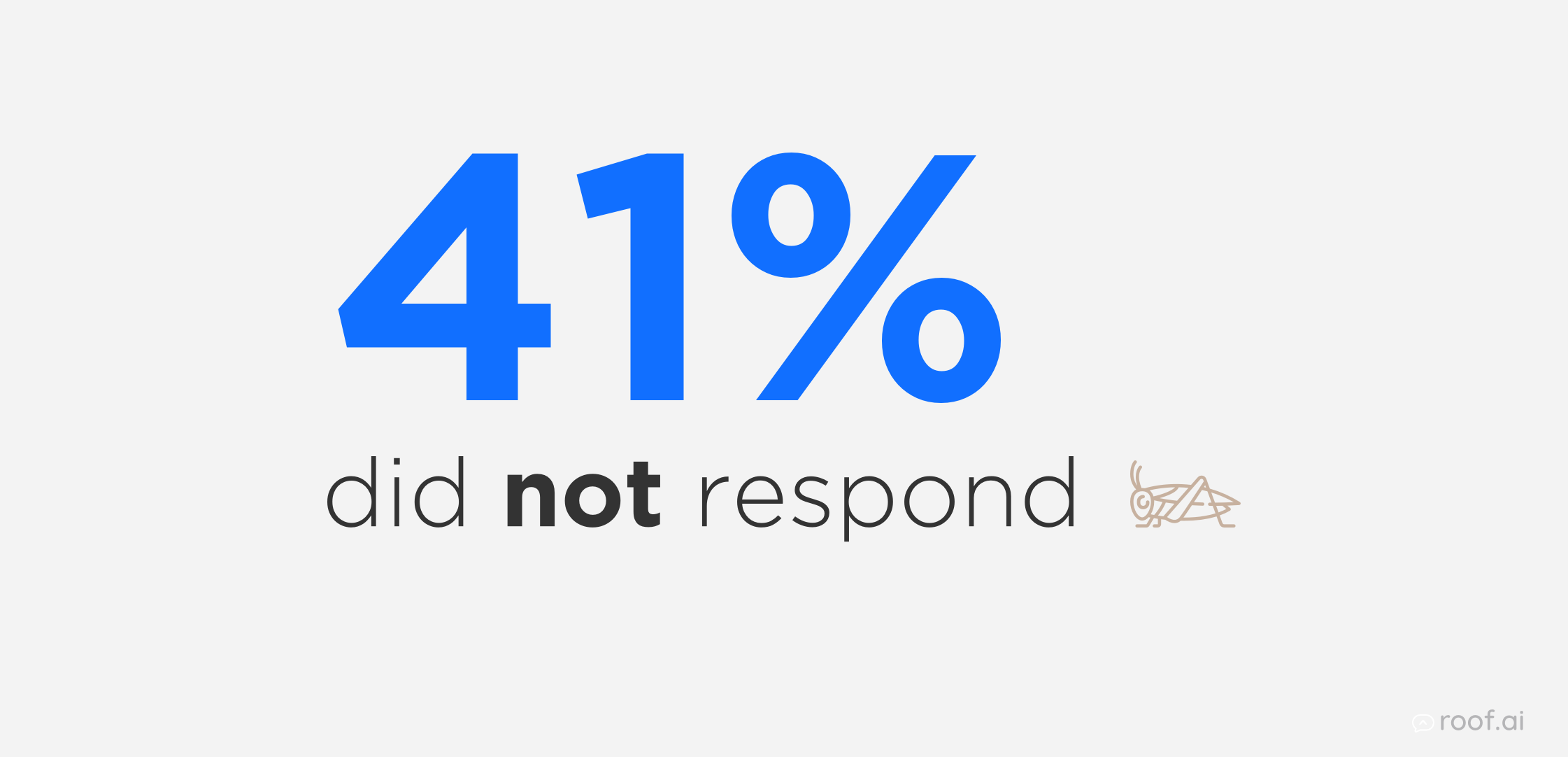
HALF responded within the 3 day time frame.
Only 9% (7 brokerages) managed to respond within the 5 minutes window.
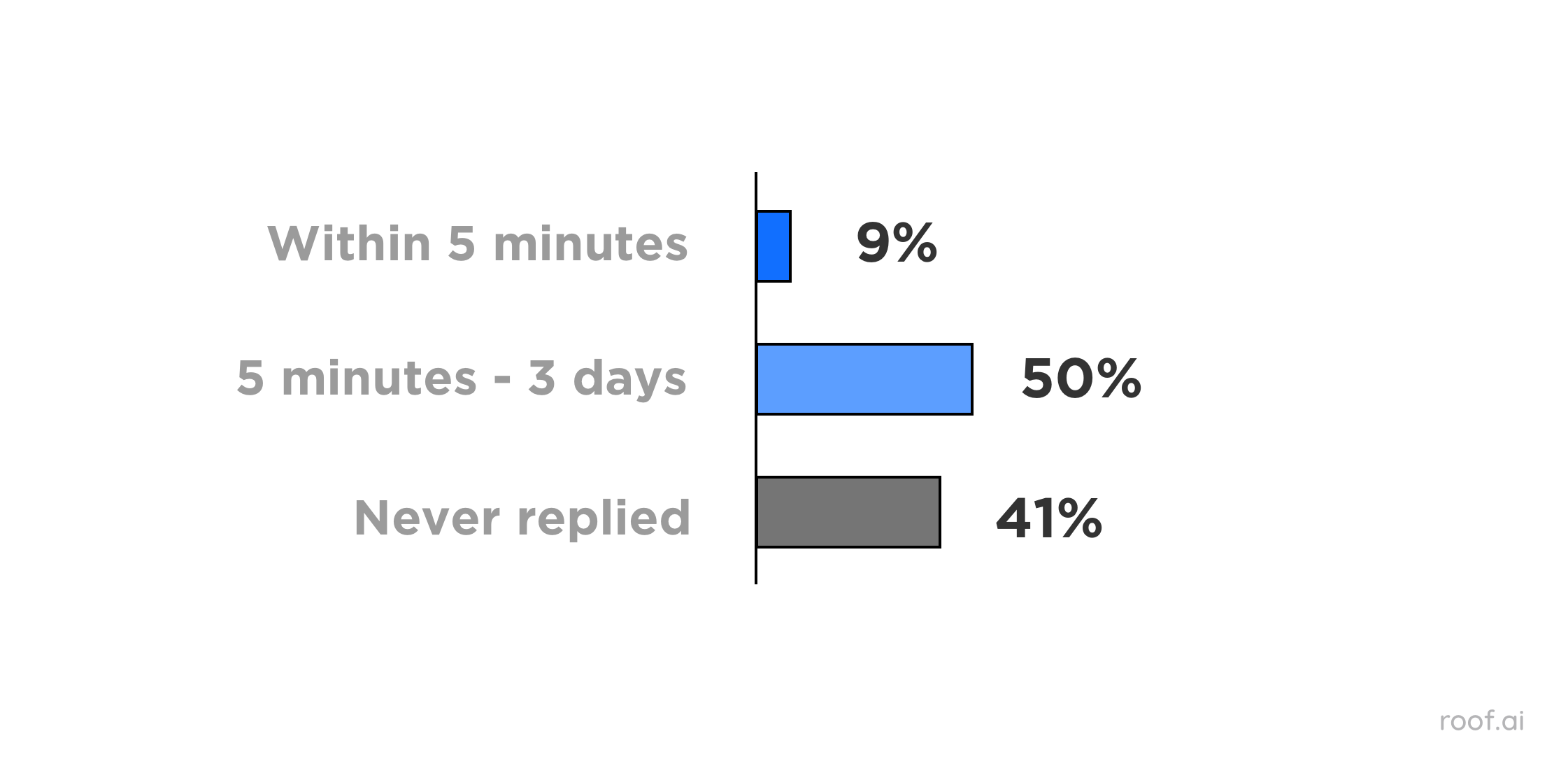
So why are most of the hottest real estate leads being ignored and not responded to?
It’s because the tools most brokerages are using do not help them capture the leads and respond in time.
Nighty-one percent of the brokerages we surveyed used a form to capture the intent. Yes, a static form was the only method of communication available for a lead to contact a brokerages in 91% of the cases.
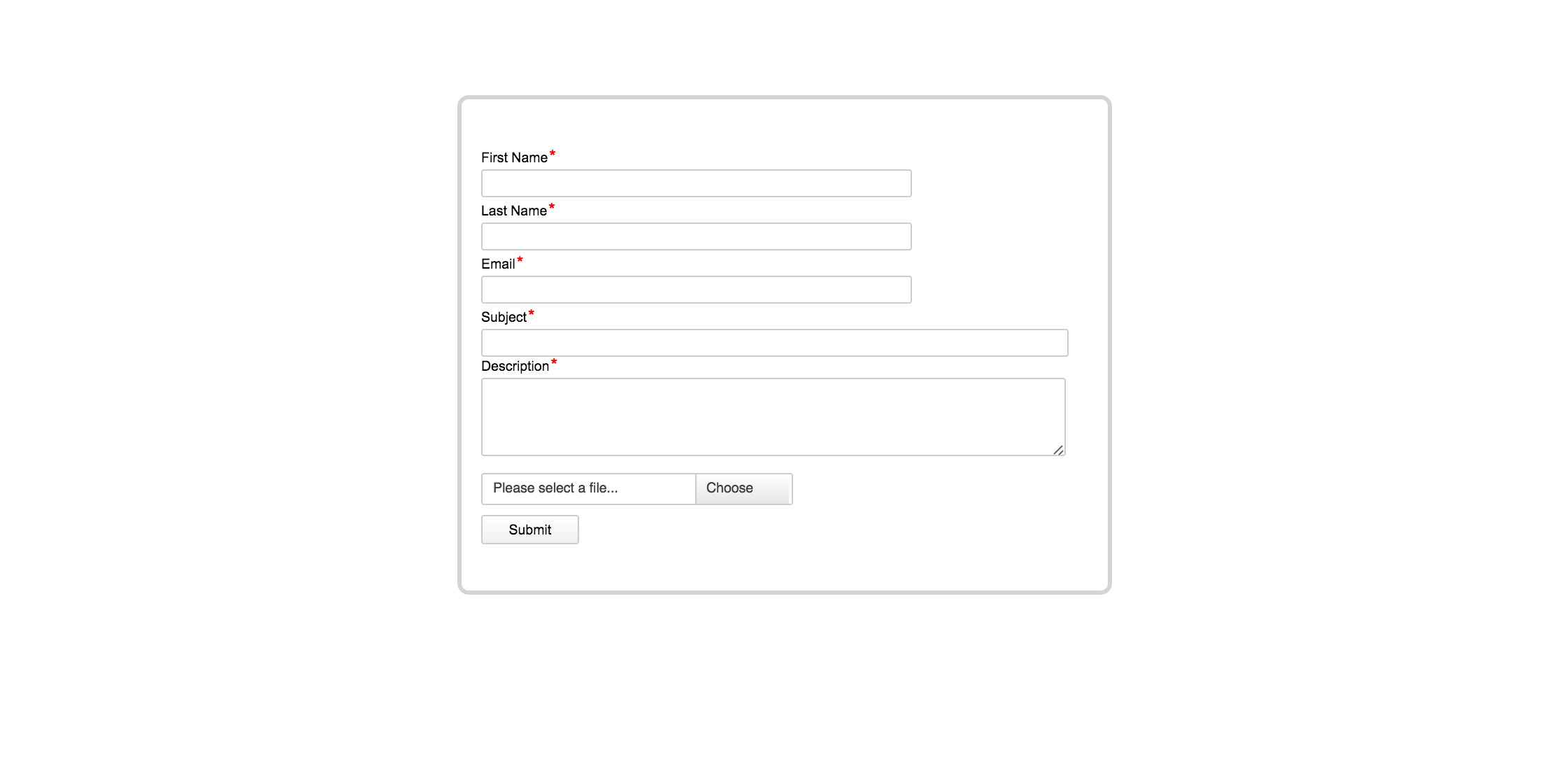
Why is that bad? Because studies show that 9 out of 10 people expect to use messaging to communicate with a business.
So what happens after a lead submits a form?
Their inquiry goes through a maze of a marketing/sales funnel. Take look:
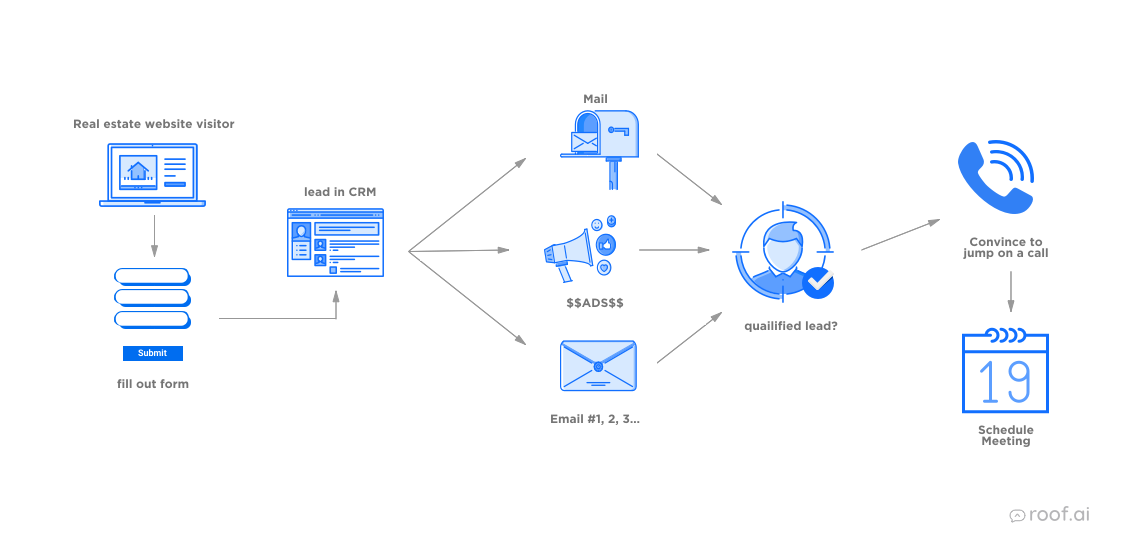
A lead visits a brokerage’s website and submits a form. His information goes into a CRM. The CRM might have certain business rules that enforce routing this lead to an agent’s email or CRM; or it might stay in the brokerage’s CRM. Once the lead is nestled in the system, a barrage of nurturing marketing emails start going the lead’s way. These emails do more harm than good because they are often impersonal. Either that or the lead has to wait till an agent has the time to respond to them.
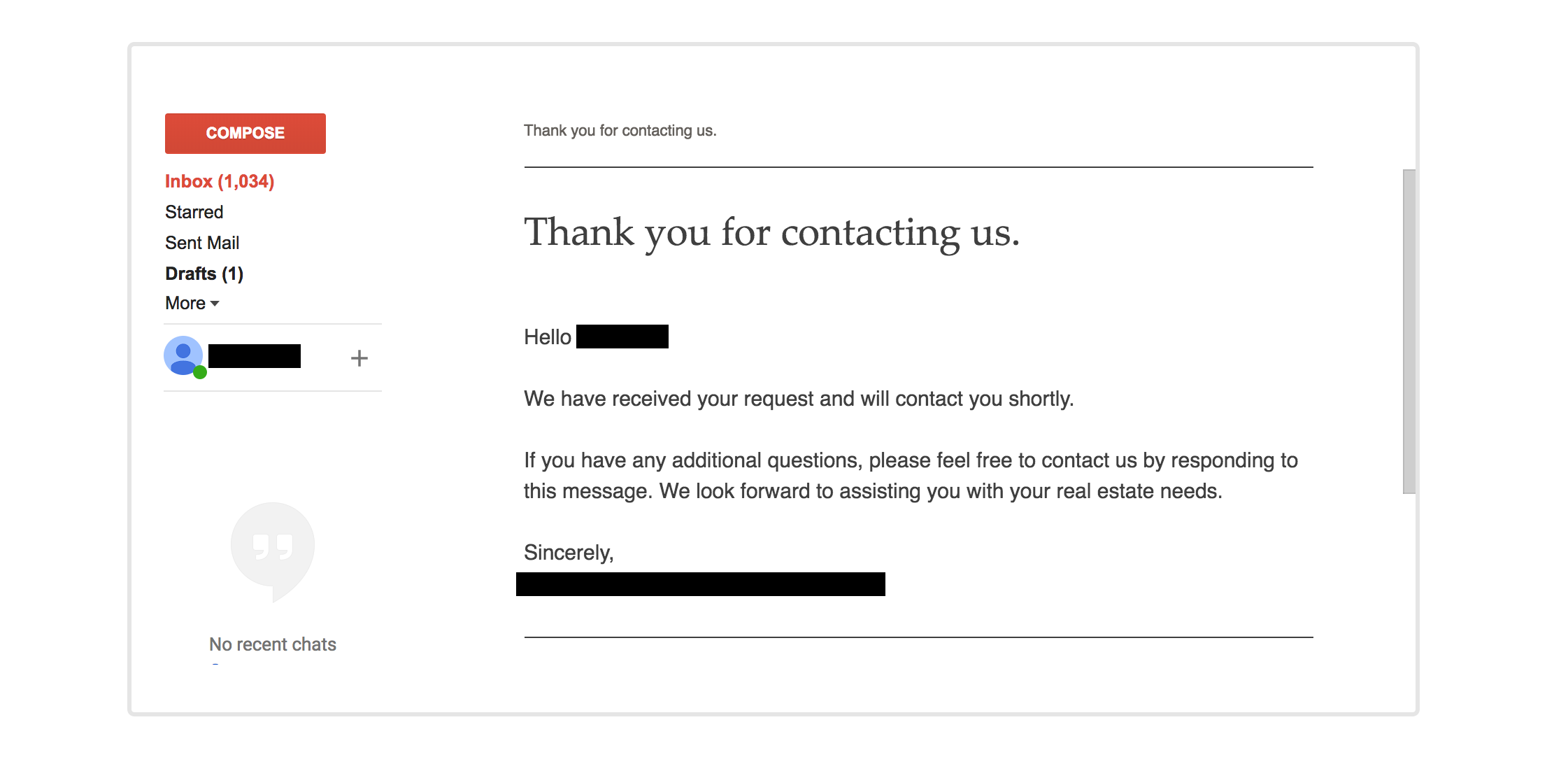
The process is not streamlined. It is full of delays and frictions. By the time the lead gets an answer they have already left the website and are probably dealing with your competitor.
A 400% decrease in chances of qualifying a lead after only 5 minutes of initial contact, explains why many agents and brokers have trouble converting online leads. What is that percentage decrease after an hour or a day or 5 days delay? A lot!
The Winners
Only 7 brokerages were able to respond within the 5 minute window. All of these brokerages had one thing in common - a chat widget on their website.
That’s why they were able to respond that fast. No forms, no back and forth emails, no lead routing. Just straight up one-to-one conversations.
They were able to do so in such a short period of time because their funnel looked something like that:
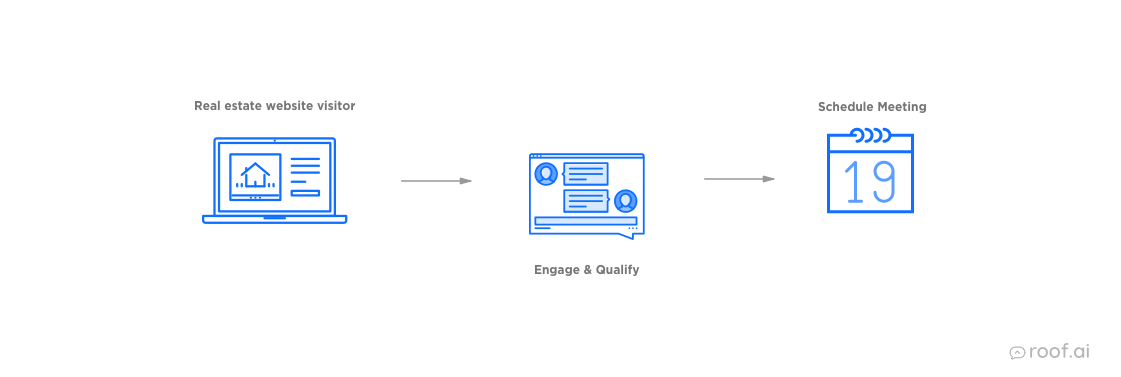
Remember the stat? 90% of people said they prefer to use messaging to talk to brands.
Come to think about it, that’s how actual people engage in real life.
Imagine you are out shopping.
Once you enter a store, you expect the sales rep to welcome you and help you out with whatever you need. They might start a conversation with you in regards to what you are looking for to guide you in the right way.
They will not shove a form in your face to fill out. Make you leave the store. And then 3 days after call you and tell to come back. Doesn’t make sense right?
Then why is it ok that we do that with our webbsite visitors in our real estate online stores (websites)?
The best time to convert a visitor to a lead is with one-to-one conversations when they are live on the website. Not after they have browsed, filled out a static form and left.
The Focus on Customer Experience
We are seeing the companies that focus on owning their audience and the demand win.
What do “disruptive” companies such as Amazon, Zillow (being the #1 most visited real estate website in the world), Redfin, Uber, Airbnb have in common? They focus on their customers as their north star and shift the whole buying experience to favor those customers.
So how can you, as a real estate brokerage, focus on improving your customer experience online?
Start by resolving the communication flaws between you and your leads that result in slow response times:
- Adopt a conversational marketing mindset and integrate messaging into your website and business. - Invest in tools that allow you to have 1-to-1 conversations with your website visitors at scale. - Always be close to your customers. It’s this close proximity that will help you enhance the customer experience, increase your brand loyalty, ultimately beating your competition.
You Are Not The First
One brokerage that has adopted a conversational marketing mindset and has implemented smart chat on their website, is The Keyes Company.
A couple of months in they have already seen impressive results.
Here’s the case study that shows how, with Roof AI, The Keyes Company has managed to increase their potential opportunities by 86% and their qualified leads by 43% (monthly).
